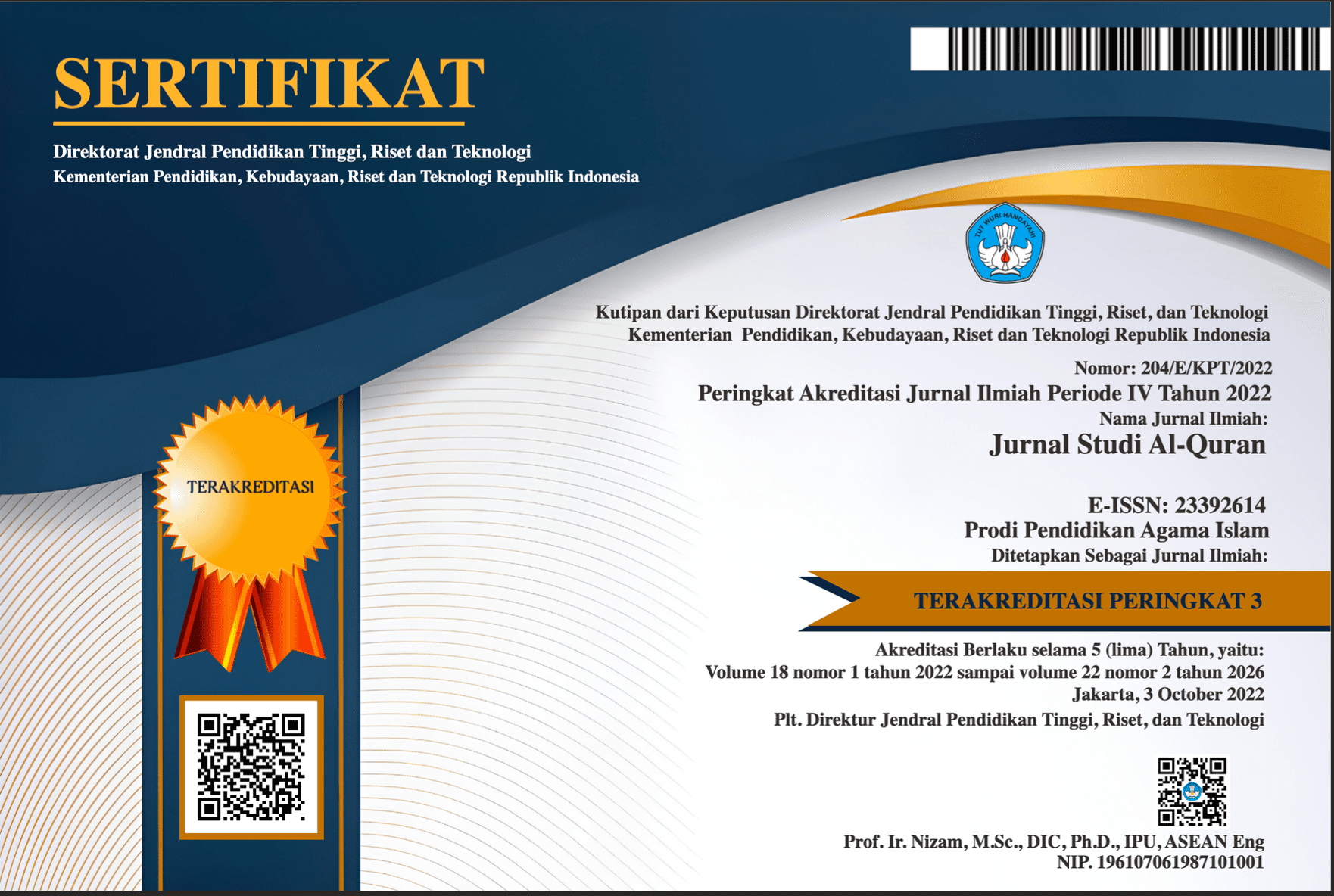Postmodernisme dan Perkembangan Pemikiran Islam Kontemporer
DOI:
https://doi.org/10.21009/JSQ.015.2.06Keywords:
Postmodernisme, Modernisme, Pemikiran IslamAbstract
Modernism and postmodernism were born from mainland Europe and America. This philosophical thought penetrated religious issues. Postmodernism was born as an attempt to understand social conditions and phenomena, the term postmodernism appeared for the first time in literature in 1939. In the context of religion, Postmodernism in its aim so that religious understanding does not fall into the system of totalitarian interpretation in a religious context and the context of social systems, economics, culture, and politics. The topic of Postmodernism in this paper is presented based on its actuality and to stimulate our thinking which is generally still oriented to modern or even traditional concepts. By studying this relatively new concept we will be confronted with the basic question of which philosophical thinking results have correlation values and relevance to the development and demands of contemporary society, not which ones are theoretically correct. The statement confirms the relativity of reason. The realm of absolute truth is not in humans, absolute truth is from and belongs to God.
Keywords: Postmodernism, Contemporary Islam, Moderism
Abstrak
Modernisme dan postmodernisme lahir dari daratan Eropa dan Amerika Pemikiran filosofis ini merambah ke persoalan keagamaan. Postmodernime lahir sebagai usaha memahami kondisi dan fenomena sosial, istilah postmodernisme muncul untuk pertama kalinya dalam sastra pada tahun 1939. Dalam konteks keagamaan, Postmodernisme dalam bertujuannya agar faham keagamaan tidak jatuh pada sistem tafsir totaliter tunggal dalam konteks keagamaan dan dalam konteks sistem sosial, ekonomi, budaya dan politik. Topik Postmodernisme dalam tulisan ini disajikan berdasarkan pada aktualitasnya dan guna merangsang pemikiran kita yang pada umumnya masih berorientasi pada konsep-konsep modern atau bahkan tradisional. Dengan mempelajari konsep yang relatif baru ini kita akan dihadapkan pada pertanyaan dasar tentang hasil pemkiran filsafat yang manakah yang mempunyai nilai korelasi dan relevansi dengan perkembangan dan tuntutan masyarakat kontemporer, bukan yang manakah yang benar secara teoritis an sich. Pernyataan tersebut menegaskan relativitas kebenaran nalar. Wilayah kebenaran mutlak bukan ada pada manusia, Kebenaran mutlak adalah dari dan milik Tuhan.
Kata kunci: Postmodernisme, Modernisme, Pemikiran Islam
References
Arkoun, Muhammad. Membongkar Wacana Hegemonic Dalam Islam Dan Postmodernisme. Edited by Shalih Hasyim. Bandung: Al- Fikr, 1992.
Arnold, J. Toynbee. A Study of History, Introduction:The Geneses of Civilizations. United Kingdom (UK): Oxford University Press, 1934.
Dermot, Moran. Husserl’s Crisis of The Europan Sciences and Transendental Fhenomenologys. New York AS: Cambridge University Perss, 2010.
Howe, Irving. Mass Society and Postmodern Fiction, n.d. http://www.amerlit.com/documents/MASS_SOCIETY_AND_POSTMODERN_FICTION.pdf.
Lavin, Harry. “What Was Modernism?” JSTOR 1, no. 4 (1960): 609–630. https://www.jstor.org/stable/25086557?seq=1#page_scan_tab_contents.
The Postmodern Condition: A Report On Knowledge, 1979
Downloads
Published
How to Cite
Issue
Section
License
Authors who publish with this Journal agree to the following terms:
- Author retain copyright and grant the journal right of first publication with the work simultaneously licensed under a creative commons attribution licensethat allow others to share the work within an acknowledgement of the work’s authorship and initial publication of this journal.
- Authors are able to enter into separate, additional contractual arrangementfor the non-exclusive distribution of the journal’s published version of the work (e.g. acknowledgement of its initial publication in this journal).
- Authors are permitted and encouraged to post their work online(e.g. in institutional repositories or on their websites) prior to and during the submission process, as it can lead to productive exchanges, as well as earlier and greater citation of published works.
Users/public use of this website will be licensed to CC BY









